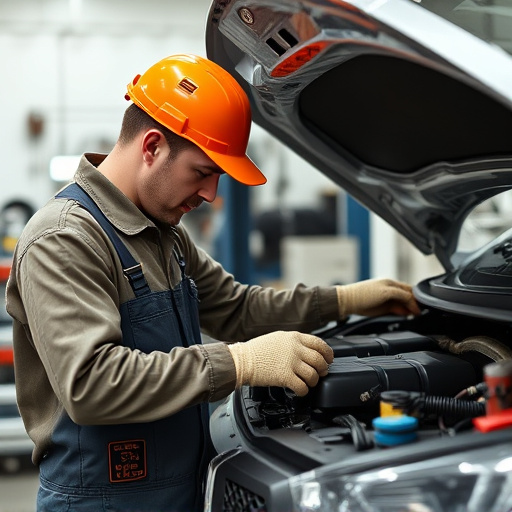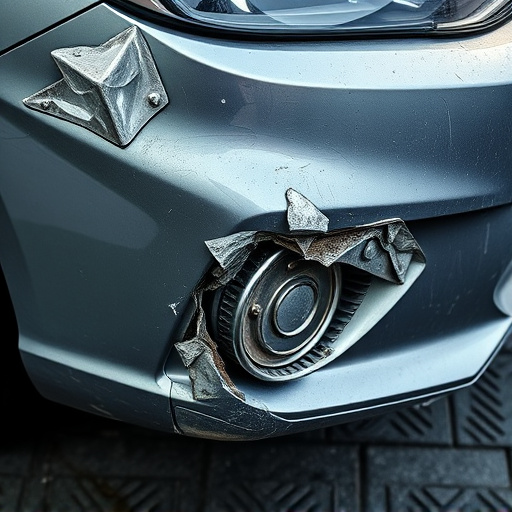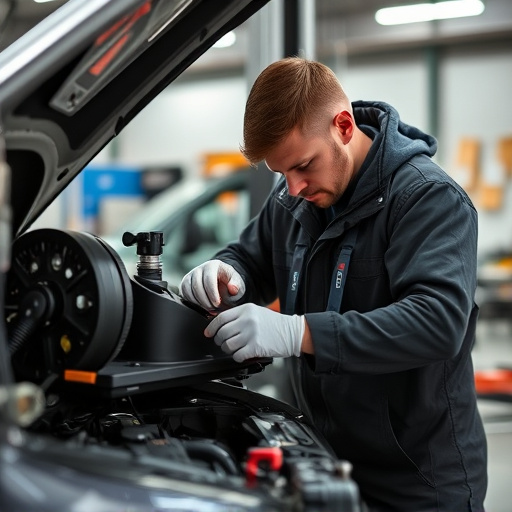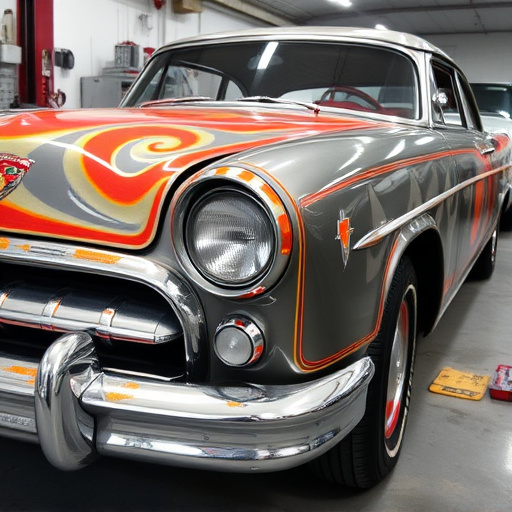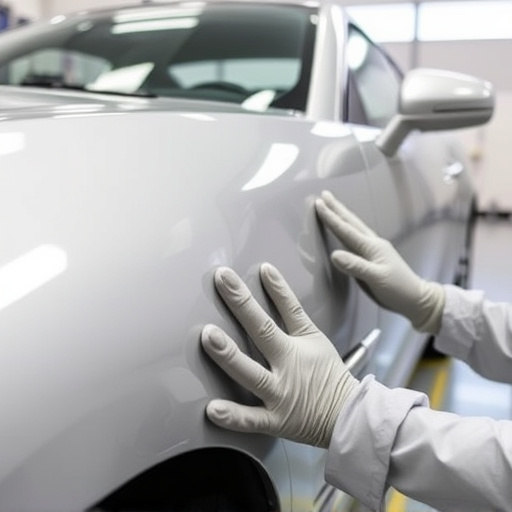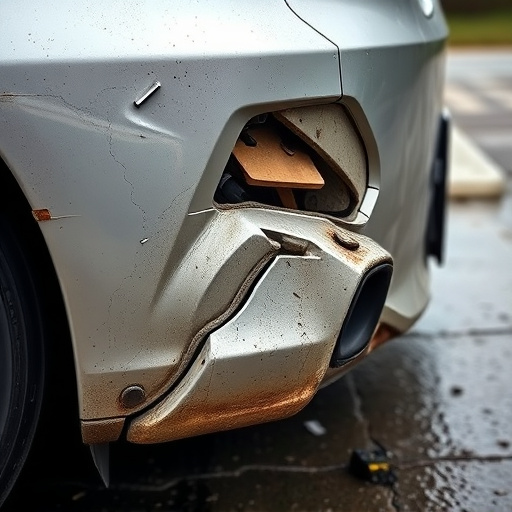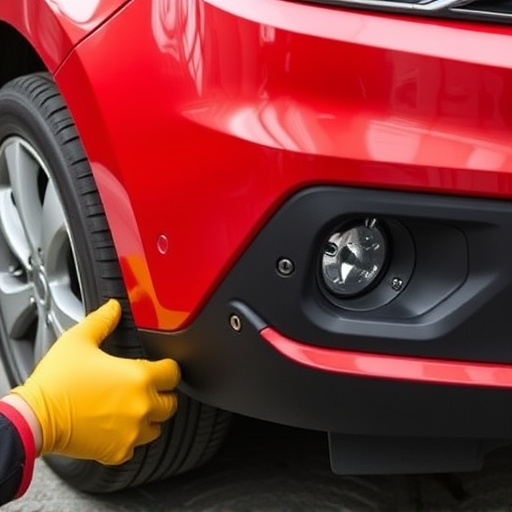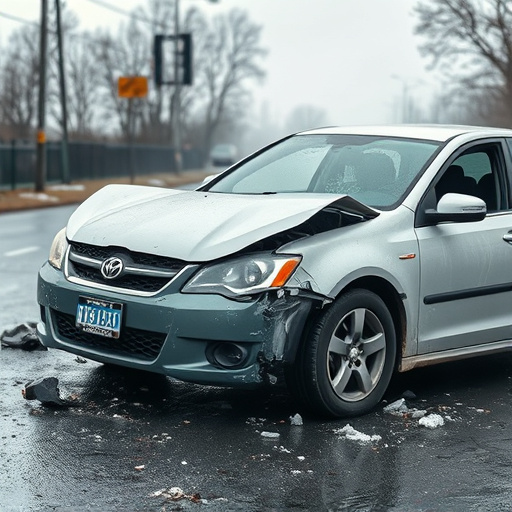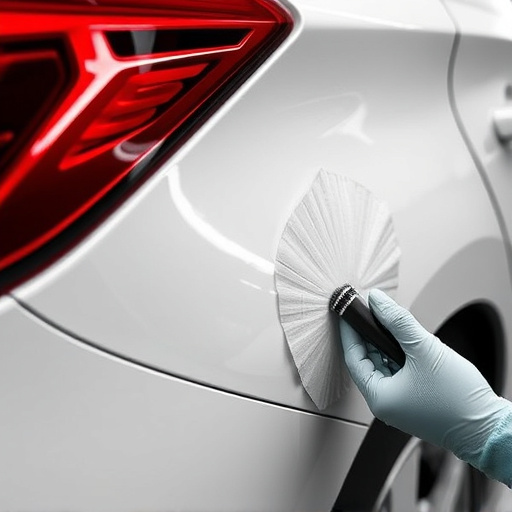Repair specification compliance is vital for auto body shops, ensuring high-quality and safe vehicle repairs by adhering to manufacturer guidelines. Technicians, through training, interpret complex instructions on parts selection and repair processes, maintaining accuracy and consistency. Shops implement rigorous Quality Control measures using advanced tools and standardized protocols, meeting OEM standards and preserving vehicle reliability. This commitment drives customer satisfaction and fosters trust in the shop's expertise for intricate body work.
In today’s competitive market, repair specification compliance is non-negotiable for shops aiming to maintain customer trust and satisfaction. This article explores the critical steps workshops employ to meet these stringent requirements. We’ll delve into understanding the intricate details of repair specifications, empowering technicians through training, and implementing quality control measures that ensure accuracy and consistency in every repair. By adhering to these practices, shops can deliver superior service and enhance their reputation.
- Understanding Repair Specifications: Key Components
- Training and Education: Empowering Technicians
- Quality Control Measures: Ensuring Accuracy and Consistency
Understanding Repair Specifications: Key Components
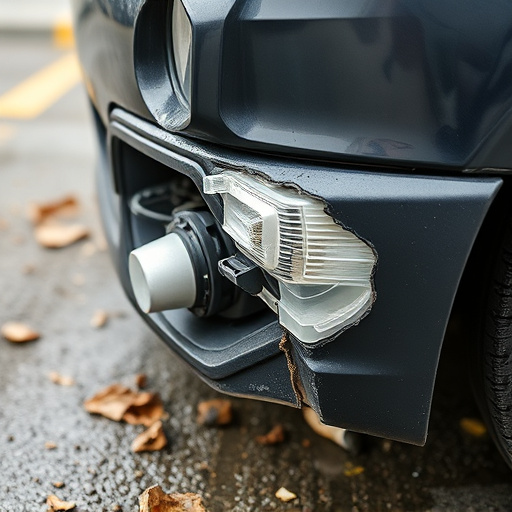
Repair specifications are critical documents that outline the precise steps and standards for repairing vehicles, ensuring they meet manufacturer guidelines and customer expectations. These specifications cover various aspects, from parts selection to the sequence of repair procedures. Each component is meticulously detailed to guarantee the highest quality and safety standards in car repair services.
For a car body shop, understanding these specifications is paramount to achieving repair specification compliance. It involves deciphering detailed instructions on body panel replacement, paint matching techniques, and specific adhesives or sealants to use. By adhering to these guidelines, car damage repair processes become more accurate and consistent, resulting in superior craftsmanship and customer satisfaction.
Training and Education: Empowering Technicians
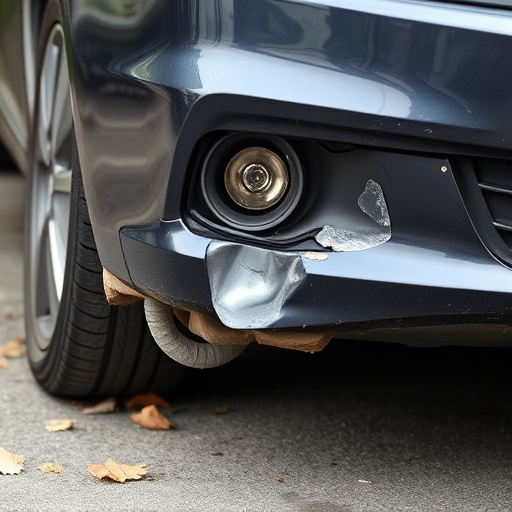
Technicians are the backbone of any auto repair shop, and their skills and knowledge play a pivotal role in ensuring repair specification compliance. That’s why comprehensive training is an integral part of any reputable shop’s strategy. By providing ongoing education, shops equip their technicians with the latest industry standards, technological advancements, and best practices. This empowers them to interpret complex repair specifications accurately and implement them flawlessly.
Well-trained technicians are adept at understanding the intricacies of different vehicle makes and models, including high-end brands like Mercedes Benz (mercedes benz collision repair). They can identify potential issues, adhere to strict safety protocols, and deliver repairs that meet or exceed original equipment manufacturer (OEM) standards. This level of expertise not only ensures the satisfaction of customers seeking auto repair near me but also fosters trust in the shop’s capabilities for handling even the most intricate automotive body work.
Quality Control Measures: Ensuring Accuracy and Consistency
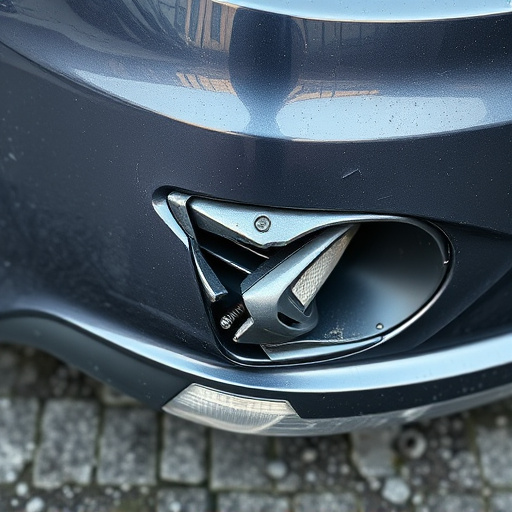
In the realm of vehicle repair services, auto body shops play a pivotal role in ensuring repair specification compliance. This involves rigorous Quality Control (QC) measures to guarantee accuracy and consistency throughout the restoration process. Each step, from initial assessment to final inspection, is meticulously executed to meet the exacting standards set by original equipment manufacturers (OEMs).
Shops employ advanced tools and technology for precise measurements, color matching (especially crucial in auto painting), and structural integrity checks. Trained technicians follow standardized protocols, ensuring that every repair adheres to the specified guidelines. This commitment to quality control not only guarantees customer satisfaction but also maintains the long-term reliability and value of the repaired vehicle, fostering a positive reputation for the auto body shop among its clientele.
Shops that prioritize repair specification compliance gain a competitive edge by delivering accurate, consistent, and high-quality repairs. By implementing robust training programs for technicians, establishing comprehensive quality control measures, and fostering a culture of understanding repair specifications, these businesses ensure customer satisfaction and build trust in their services. This, in turn, strengthens their position in the market and fosters long-term relationships with both clients and manufacturers.


